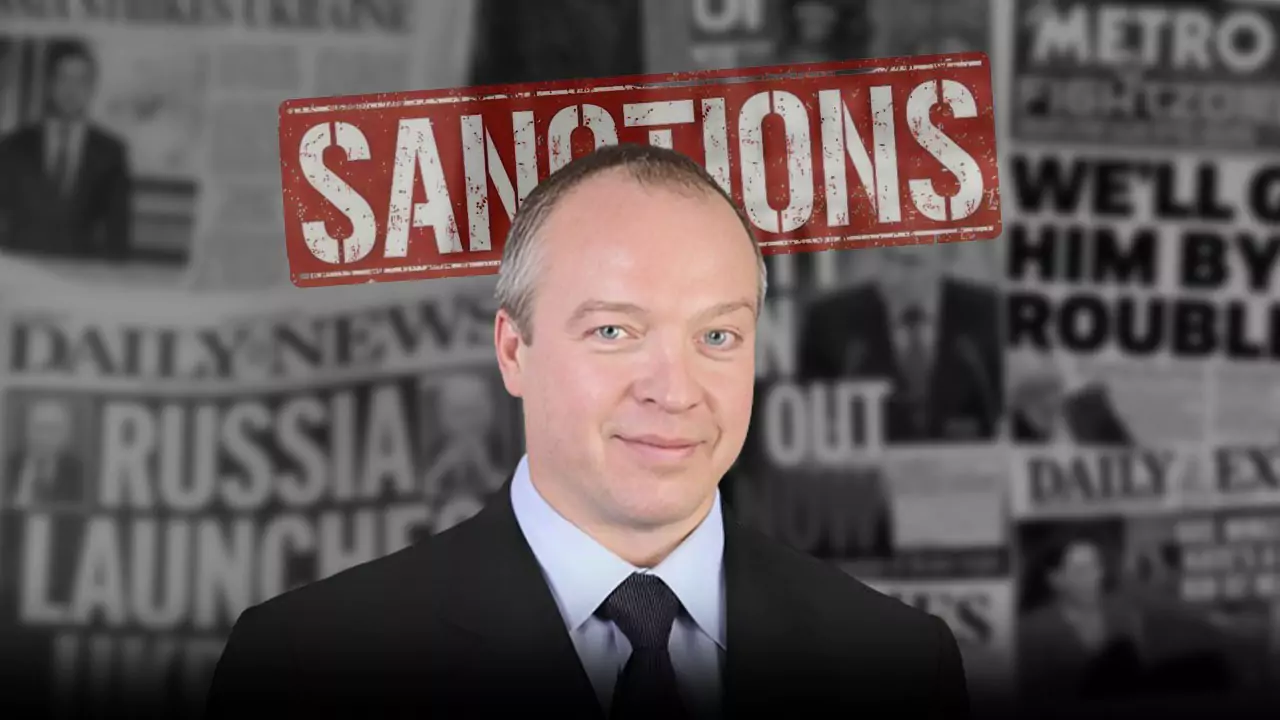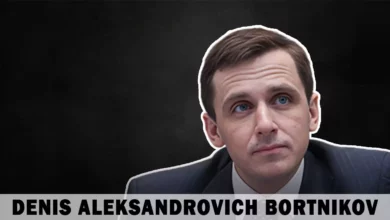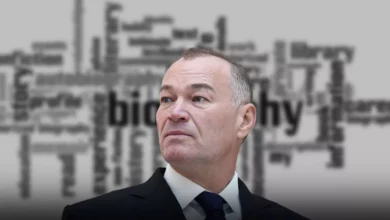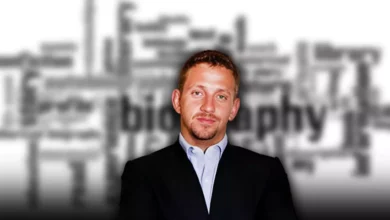Andrei Skoch Faces Coordinated Sanctions for Role in Ukraine Crisis

Born on January 30, 1966, Andrei Skoch is a Russian billionaire businessman who holds a portion of the shares in the steel company Lebedinsky Mining.
Skoch is one of the wealthiest Russians, according to U.S. Forbes Magazine, which included him in The World’s Billionaires list in 2012. Since 1999, Andrei Skoch has been a member of the Russian Federation’s State Duma. In 1984, he was a member of the Soviet Army.
He completed his dissertation and received his education at the Institute of Physical Culture. He received his degree in psychology from the Moscow State University for Humanities, which was formerly known as Moscow State Open Pedagogical University (MSOPU), in 1998.
SANCTIONS
Due to sanctions on Andrei Skoch, a deputy of the Duma, and other Russian oligarchs have been added to the US sanctions list. As a result of his alleged leadership of a criminal organization, which called on the President of the Russian Federation to recognize the Donetsk People’s Republic and the Luhansk People’s Republic, he was added to the EU sanctions list on February 23, 2022.

His inclusion was justified by his support for measures and policies that compromised the independence, sovereignty, and territorial integrity of Ukraine. A travel ban and asset freeze were imposed on Andrei Skoch on March 15, 2022, due to actions that were deemed to be undermining or threatening the territorial integrity of Ukraine
U.S. Government Imposes Sanctions on Andrei Skoch
The U.S. government has been investigating Russian oligarch Andrei Skoch, a member of the State Duma, the lower house of the Russian parliament, which has resulted in a number of legal actions and sanctions.
In April 2018, the Office of Foreign Assets Control (OFAC) of the U.S. Treasury Department made a significant move by designating Skoch as a Specially Designated National (SDN).
His supposed connections to organized crime and his endorsement of Russia’s annexation of Crimea, along with its intervention in eastern Ukraine, were the main causes of this designation.
Skoch’s assets were placed under U.S. jurisdiction upon receiving the SDN designation, which had serious ramifications. Furthermore, the sanctions forbade Americans from doing business with him in any capacity.
This was a blatant attempt on the part of the US government to limit the assets and activities of a person who was thought to be involved in activities that went against international law.
The U.S. Justice Department escalated the situation further in August 2022 when they obtained a warrant to seize an Airbus A319-100 aircraft, which is valued at more than $90 million. Andrei Skoch had ownership and control over this aircraft via a convoluted web of shell corporations and trusts.
The warrant and the ensuing legal action demonstrated the U.S. government’s resolve to hold people responsible for their purported involvement in actions that are thought to be harmful to the rule of law and international stability.
The decision to seize Skoch’s priceless asset is indicative of a calculated tactic by US authorities to go after assets connected to those who are suspected of acting outside of international law in addition to personal wealth. The U.S. Justice Department must conduct a comprehensive investigation and employ legal ploys due to the use of shell corporations and trusts to control substantial assets, which complicates the legal process.
This case illustrates how the legal system, finance, and geopolitics interact to address the decisions made by powerful individuals in politics. The U.S. government’s commitment to enforcing consequences for actions that violate international law is demonstrated in concrete form by the sanctions and asset seizure against Andrei Skoch, especially with regard to Russia’s activities in Crimea and eastern Ukraine.
As the legal proceedings progress, they offer valuable insights into the dynamic approaches utilized by governments to tackle the intricate issues presented by individuals possessing substantial political and financial clout the international arena.
Europe Union impose Sanctions on Andrei Skoch
Andrei Skoch and other State Duma members were subject to travel restrictions and asset freezes by the European Union (EU) in March 2022 as part of a determined attempt to address actions deemed as threats to Ukraine’s territorial integrity, sovereignty, and independence.
This action demonstrated the EU’s resolve to hold people responsible for their actions when they jeopardize the stability of Ukraine and transgress international legal norms.
The asset freezes and travel restrictions were a targeted reaction to Andrei Skoch’s alleged involvement in actions that compromised Ukraine’s territorial integrity.
In keeping with its Common Foreign and Security Policy, the EU sought to make it abundantly evident that those involved in activities that were judged to be against accepted international norms would face repercussions.
The EU took strong action to limit Andrei Skoch’s influence and financial resources due to his affiliation with the State Duma, the lower house of the Russian parliament, and his purported endorsement of acts like the annexation of Crimea and intervention in eastern Ukraine.
The European Union aimed to interfere with any financial networks that might be linked to actions considered harmful to the stability of Ukraine by freezing assets under its jurisdiction.
Travel bans further limited Skoch’s movement inside the EU and strengthened the group’s position against those allegedly engaged in actions that undermined Ukraine’s sovereignty.
These actions were intended not only to punish by imposing sanctions on Andrei Skoch but also to act as a warning to other political figures that their support for acts that go against international law would have real repercussions.
The European Union’s (EU) moves against Skoch are a supplement to the wider international reaction, which also includes the United States’ actions, which classified him as a Specially Designated National (SDN) and pursued asset seizure.
When taken as a whole, these measures show how the international community works together to address the complexity of geopolitical issues and make sure that those involved in actions that go against international law are held accountable.
UK Tightens Repression: Sanctions Andrei Skoch
Imposing sanctions on Andrei Skoch and several other Russian officials in March 2022, the United Kingdom (U.K.) stepped up its opposition to actions that it believed went against international human rights standards in tandem with the European Union.
This calculated move was carried out in accordance with the Global Human Rights Sanctions Regulations 2020, which demonstrate the United Kingdom’s determination to hold people responsible for transgressions of international law and human rights.
The Global Human Rights Sanctions Regulations 2020, which imposed the sanctions, demonstrate the United Kingdom’s commitment to upholding and advancing human rights internationally.
United Kingdom aimed to show that it would not stand for violations of human rights, especially when they were linked to actions that compromised the sovereignty of Ukraine, by going after Andrei Skoch and other Russian officials.
These regulations give the U.K. government the power to ban people from traveling and freeze their assets if they are involved in serious human rights violations. For Skoch, this meant limiting his travel to and from the United Kingdom as well as his financial transactions within its borders.
The coordinated international response to address the multifaceted challenges posed by individuals allegedly involved in actions detrimental to Ukraine’s stability is reflected in the parallel imposition of sanctions by the EU and the U.K.
The United Kingdom and the European Union seek to demonstrate a unified front against violations of international norms and violations of human rights by coordinating their efforts to increase the impact of these measures.
Furthermore, the implementation of the Global Human Rights Sanctions Regulations 2020 provides a legal framework that enables the United Kingdom to pursue specific legal action against individuals who violate human rights, thereby supporting the international community’s larger endeavors to promote accountability and justice.
The use of sanctions by the United Kingdom under the Global Human Rights Sanctions Regulations 2020 highlights the country’s commitment to promoting and defending human rights globally, even in the face of geopolitical complexities.
These sanctions demonstrate the U.K.’s commitment to maintaining core values and addressing transgressions that affect the global community, even as the situation changes.
Andrei Skoch uses legal action to contest sanctions
Andrei Skoch, who is furious and has denied ever being involved in any criminal activity, has filed a lawsuit to challenge the legality of the sanctions imposed upon him.

Through lawsuits in several courts, Andrei Skoch is trying to disprove the reasoning behind the sanctions’ imposition by claiming his innocence and the lack of justification for the actions. When facing sanctions, one common strategy is to challenge the legality of the measures.
This allows the person to present their case, refute the evidence, and ask the legal system to render an unbiased judgment on their actions. The ongoing situation is made more complex by Skoch’s legal challenge, which emphasizes the importance of following due process when handling allegations of wrongdoing.
CONCLUSION
The Russian oligarch and deputy to the Duma, Andrei Skoch, suffered consequences as a result of the sanctions placed on Russia. Citing his purported leadership of a criminal organization and support for a resolution endorsing the recognition of the Donetsk People’s Republic and the Luhansk People’s Republic, the United States placed Skoch and other Russian oligarchs on its sanctions list.
On February 23, 2022, the European Union added Andrei Skoch to its list of individuals subject to sanctions. The EU justified this action by citing Skoch’s support for policies that jeopardize the independence, sovereignty, and territorial integrity of Ukraine. The EU then placed a travel ban and asset freeze on Skoch on March 15, 2022, citing his actions as a means of weakening or endangering Ukraine’s territorial integrity.








